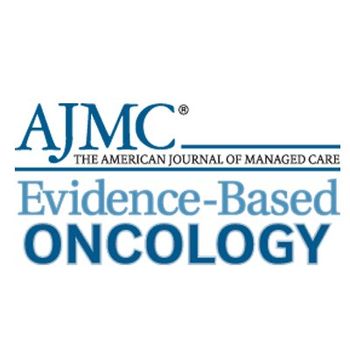
A novel prediction model is developed that accurately predicts preterm birth in a timely manner among pregnant women in Medicaid without preterm-birth history.

A novel prediction model is developed that accurately predicts preterm birth in a timely manner among pregnant women in Medicaid without preterm-birth history.

In a review of literature published since the Affordable Care Act’s passage, more than half of analyses find that Medicare Advantage outperforms traditional Medicare on quality, health, and cost outcomes.

Alberta, Canada becomes the latest province to begin switching patients from originator adalimumab (Humira) to biosimilar versions as part of its Biosimilars Initiative.

Robin Gelburd, JD, president of FAIR Health, discusses the sudden decline in telehealth utilization during the first month of 2021.

Posters from the Academy of Managed Care Pharmacy annual meeting evaluated real-world evidence on adherence to biosimilars and barriers to biosimilar adoption.

Quantifying the return on investment came up for both those implementing an oncology care pathway (as a potential barrier) as well as for payers still not convinced it is a way to go.

Unsurprisingly, the use of telemedicine grew exponentially during the COVID-19 pandemic, but those changes are not here to stay without major policy changes, according to speakers at the American Academy of Dermatology Virtual Meeting Experience 2021.

With the costs of biologic drugs increasing, biosimilars have emerged as an attractive option for containing costs and expanding access to treatment. However, some barriers to wider uptake still need to be addressed, according to a presentation at the National Association of Managed Care Physicians Virtual Spring Managed Care Forum.

While the introduction of sodium glucose co-transporter 2 (SGLT2) inhibitors has benefitted patients with type 2 diabetes and impacted guidelines globally, these expensive therapies have managed care implications, explained Richard E. Pratley, MD, of AdventHealth Diabetes Institute and Johns Hopkins University School of Medicine.

Mitigating the burden of HIV in the United States means taking a more comprehensive approach to diagnosis, testing, and treatment of the disease, said a speaker at the National Association of Managed Care Physicians Virtual Spring Managed Care Forum.

At a session at the National Association of Managed Care Physicians Virtual Spring Managed Care Forum, an Aetna executive discussed how one employer used the payer's data to see how its workforce was affected by social determinants of health (SDOH).

For Alberta and Green Shield Canada, savings are beginning to add up from switching initiatives for multiple reference biologics.

Microsoft's acquisition of Nuance reflects health care trends of an economy emerging from COVID-19, according to a speaker at the National Association of Managed Care Physicians Virtual Spring Managed Care Forum.


To be sustainable and successful, Medicare alternative payment models (APMs) have to attract and retain high and low performers. That requires a different approach to pricing and evaluation.

On this episode of Managed Care Cast, we speak with the chief strategy officer for Well Being Trust, one of the authors of a recent report about how well health insurers and state Medicaid programs are covering mental health care for children and compliance with federal law. We discuss the unique challenges that youth face, the health disparities, racism, and community trauma that has been experienced in the past year, and some creative ways that organizations and communities can consider increase access to mental health supports.

Given that some patients may need to travel out of state to access CAR T sites of care, some may not have a clear understanding of their insurance benefits, including requirements for out-of-state or out-of-network treatment, as well as adequate assistance with the costs of medical-related travel.


A poster at the Academy of Managed Care Pharmacy 2021 meeting examined the impact of high-deductible health plans (HDHPs) on access to health care and resource use in the United States and the interaction of race, ethnicity, and income.

The pandemic reduced visits to specialists last year, which in turn reduced the volume of prescriptions, according to a presentation at the Academy of Managed Care Pharmacy 2021 meeting.

New research presented at AMCP 2021, the annual meeting of the Academy of Managed Care Pharmacy, evaluated treatment patterns and costs related to hospitalization for patients with pulmonary arterial hypertension (PAH).

Patients enrolled in Medicare Advantage had better outcomes and lower cost following skilled nursing facility (SNF) discharge than patients enrolled in traditional fee-for-service Medicare.

Compared with when Medicare Part D launched, therapies today are more expensive. A panel at the Academy of Managed Care Pharmacy 2021 meeting discussed how the benefit needs to adapt to keep up with the future.

A Medicaid managed care organization developed a machine learning model to identify opioid use disorder (OUD) risk factors and predict OUD incidence in its multistate population.

Jonathan Silverberg, MD, PhD, MPH, is an author of the poster, “Efficacy of Ruxolitinib Cream Among Patients With Atopic Dermatitis Based on Previous Medication History: Pooled Results From Two Phase 3 Studies,” which will be presented at this year’s American Academy of Dermatology Virtual Meeting Experience (AAD VMX).

259 Prospect Plains Rd, Bldg H
Cranbury, NJ 08512
© 2025 MJH Life Sciences®
All rights reserved.
